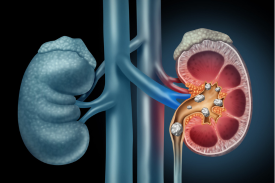Understanding High-Risk Pregnancies and the Importance of Antenatal Care
A woman’s pregnancy is a great moment in her life, but for some women, it may also be difficult. When there are circumstances that raise the possibility of difficulties during pregnancy, labor, and delivery, the pregnancy is considered high-risk. Premature delivery, preeclampsia, gestational diabetes, and fetal growth restriction are a few examples of these issues, which can range in severity from moderate to severe.
An essential component of managing high-risk pregnancies is antenatal care. Antenatal care entails routine check-ups with medical professionals, such as obstetricians, midwives, and nurses, to make sure both the mother and the unborn child are healthy and developing as anticipated. Regular prenatal care can assist in the early detection and management of any possible issues, lowering the likelihood of difficulties and improving outcomes for both mother and child.
Advantages of prenatal care early
The health and well-being of both mother and child depend on receiving prenatal care as early as possible. The initial prenatal checkup usually takes place in the first trimester of pregnancy, and it is critical to identify and treat any possible issues as soon as they arise. Early prenatal care can support the detection and management of underlying illnesses such as hypertension, diabetes, thyroid abnormalities, and other ailments. Additionally, it can aid in locating any potential risk factors for problems like premature labor or preeclampsia.
Women can receive crucial information on how to sustain a healthy pregnancy from early prenatal care. In order to lower the risk of issues and enhance general well-being, women can get advice on nutrition, exercise, and stress management.
Keeping an eye on and managing underlying medical conditions
Pregnant women with chronic medical illnesses including hypertension, diabetes, or thyroid issues need to be closely watched and managed. Regular check-ups and monitoring are part of antenatal care to make sure certain diseases are properly handled during pregnancy. To ensure that these problems are properly addressed throughout pregnancy, healthcare professionals may collaborate with additional experts like endocrinologists or cardiologists.
Lifestyle adjustments
To lower the chance of problems, high-risk pregnant women may need to change their way of life. Dietary, physical activity, and stress management adjustments, as well as any necessary medication, may be part of these adaptations. Women might also need to steer clear of certain situations at work or hobbies that could be harmful to their health or the health of their unborn child.
Emotional Assistance
A high-risk pregnancy can have a huge emotional cost. The worry and apprehension that accompany the potential for problems can be paralyzing. To assist women in coping with these emotions and lowering their stress levels, antenatal care can offer emotional support and counseling. To lessen anxiety and boost general well-being, it’s critical for pregnant women to feel educated and supported.
Early Complications Management and Detection
The early diagnosis and management of problems is one of prenatal care’s most significant advantages for women with high-risk pregnancies. Regular examinations and monitoring can assist medical professionals in seeing possible issues early on and taking the necessary precautions to prevent or manage them. By doing so, you can lower your chance of difficulties and give your baby and mother better results.
Delivery Preparation:
In certain circumstances, pregnant mothers at high risk may need to deliver their child early or have a cesarean section. Antenatal care can help women get ready for these scenarios and provide them with the knowledge and tools they need to make wise decisions about their care.
Conclusion:
In conclusion, early and regular antenatal care is essential for managing high-risk pregnancies and ensuring the health of both mother and child. The advantages of antenatal care include detecting and managing underlying medical conditions, making necessary lifestyle adjustments, providing emotional support, detecting and managing complications early, and preparing for delivery.
Furthermore, for women with high-risk pregnancies who have neurological conditions, the involvement of a neurologist such as Puneurologist can be vital in providing comprehensive care. With the collaboration of obstetricians, midwives, nurses, and other medical professionals, a neurologist can help ensure the best possible outcomes for women and their unborn children. It is crucial that all women with high-risk pregnancies receive appropriate care and support, including the involvement of relevant specialists such as neurologists, to promote a healthy and safe pregnancy and childbirth.




